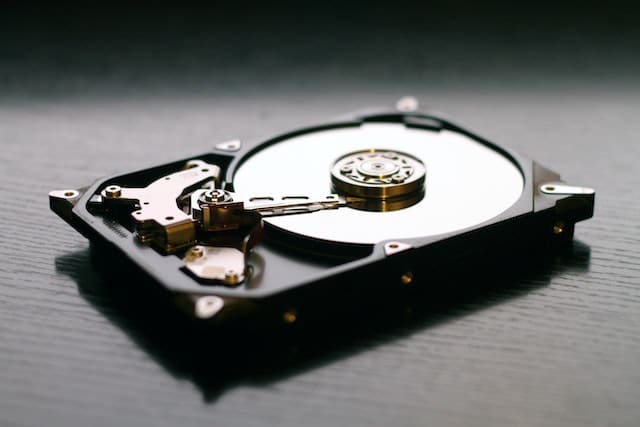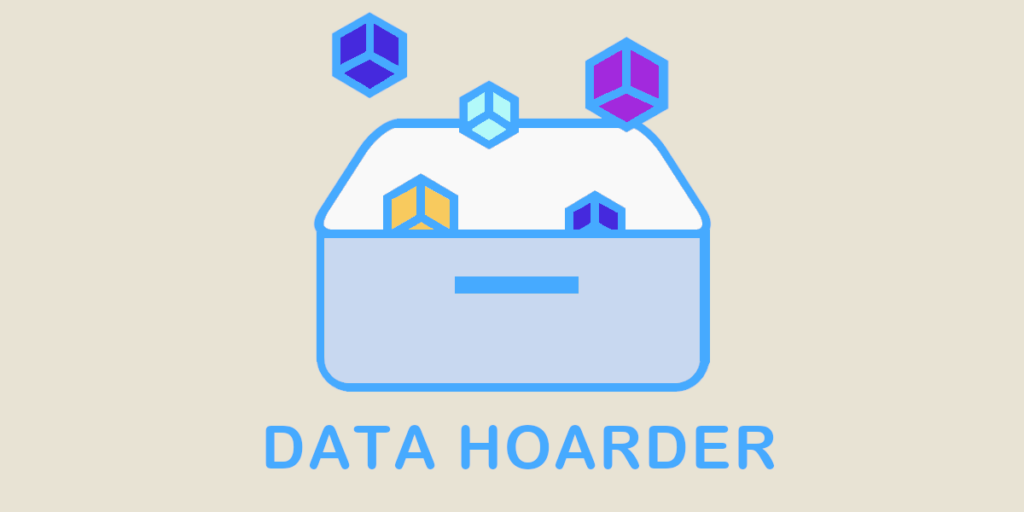A Data Hoarder stores a lot of superfluous and obsolete electronic data. They can be individuals or organisations. Find out everything you need to know about this practice, and its cybersecurity dangers for businesses!
Many people have always been compulsive hoarders. Despite the clutter in their living space, they are unable to throw away what they no longer need.
In the digital age, this behaviour is replicated by individuals and organisations who needlessly store large volumes of data: Data Hoarders.
What is Data Hoarding?
Data hoarding consists of archiving or never deleting electronic data, even if it has absolutely no use.
Unlike the accumulation of physical objects, which takes up space, data hoarding can go unnoticed because the data is invisible.
However, this practice can very quickly become a problem. It can diminish an individual’s quality of life, or even have an impact on a company’s operations.
What is a Data Hoarder?
On an individual level, data hoarding is the attitude of a person who obsessively collects files.
In the most extreme cases, they may feel anxious or frightened at the thought of deleting data.
In addition to storage, a Data Hoarder is keen to maintain access to their data from anywhere and forever.
On the Reddit forum, there has been a space specially dedicated to this practice since 2013: /r/DataHoarder/. This community has over 554,000 members.
Their motivations are varied. They may want to keep their favourite TV series on a hard drive in case it is suddenly censored or cancelled because of a legal problem.
Whatever their reasons, what Data Hoarders have in common is their categorical refusal to delete data permanently. In the most extreme cases, this behaviour can be likened to a psychological disorder.

How can we combat Data Hoarding?
To solve the problem, many organisations decide to employ a Chief Data Officer or Data Strategist to define a strategy for retaining only relevant data.
This person can establish a corporate culture around data security and storage best practice.
Network users should also be regularly reminded not to store personal data such as photos and emails in the cloud.
A “spring clean” can be organised within a company several times a year. Employees will then have the task of manually deleting old and redundant files.
This process can also be automated by IT teams to automatically purge old data after a period of time.
It’s worth noting that some cloud providers offer monitoring tools to assess how much data is being used and how often files are being opened by users. This can help you decide which files to delete.
Whether you’re at home or at work, you can avoid inconvenience by getting into the habit of spending 5 minutes a day deleting files you no longer need.
If you can’t work out which files you still need, you can decide to delete all those you haven’t opened for at least a year.
Of course, this does not apply to documents that you are obliged to keep for legal reasons.
Conclusion: the Data Hoarder, a scourge for data security
Data hoarding can cause serious problems if it becomes an individual neurosis, or if it prevents an organisation from complying with the GDPR.
It is therefore essential to correct the attitude of Data Hoarders before it is too late. This may involve training in good data management practices, or recruiting a Data Strategist or Data Director to define the company’s policy.
To learn how to master the best techniques and tools for managing, processing and storing data, you can choose DataScientest.
Our various training courses enable you to acquire all the skills you need to work as a Data Analyst, Data Engineer, Data Scientist, Machine Learning Engineer or Data Product Manager.
In particular, you will learn to use Python, databases, analysis tools, DataViz solutions and Business Intelligence software.
All our courses are entirely distance learning, and are eligible for funding options. At the end of the course, you can receive certification issued by MINES ParisTech PSL Education. Discover DataScientest now!
Now you know all about Data Hoarders. For more information on the same subject, take a look at our complete dossier on Data Management and our guide to the job of Data Strategist.










